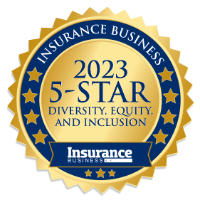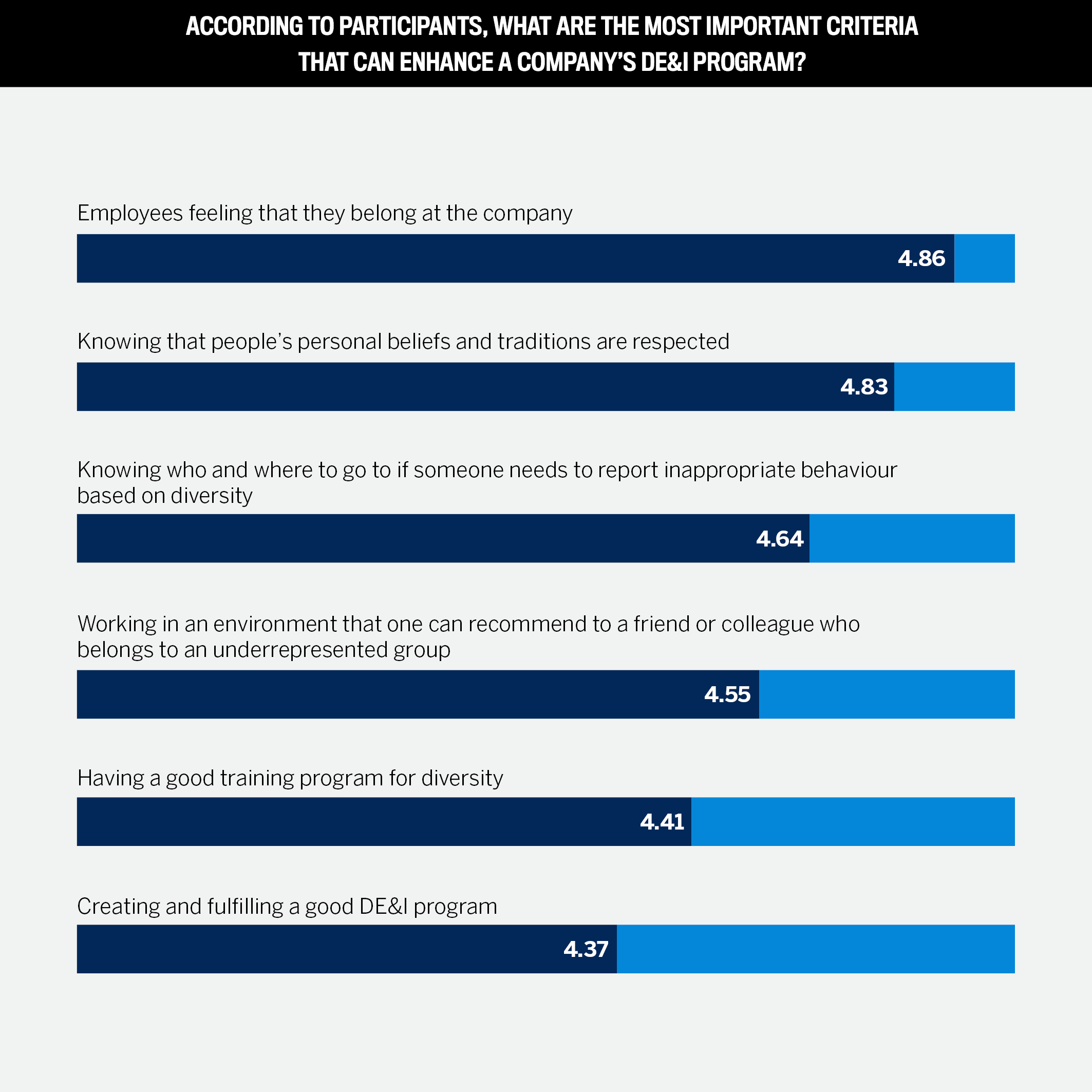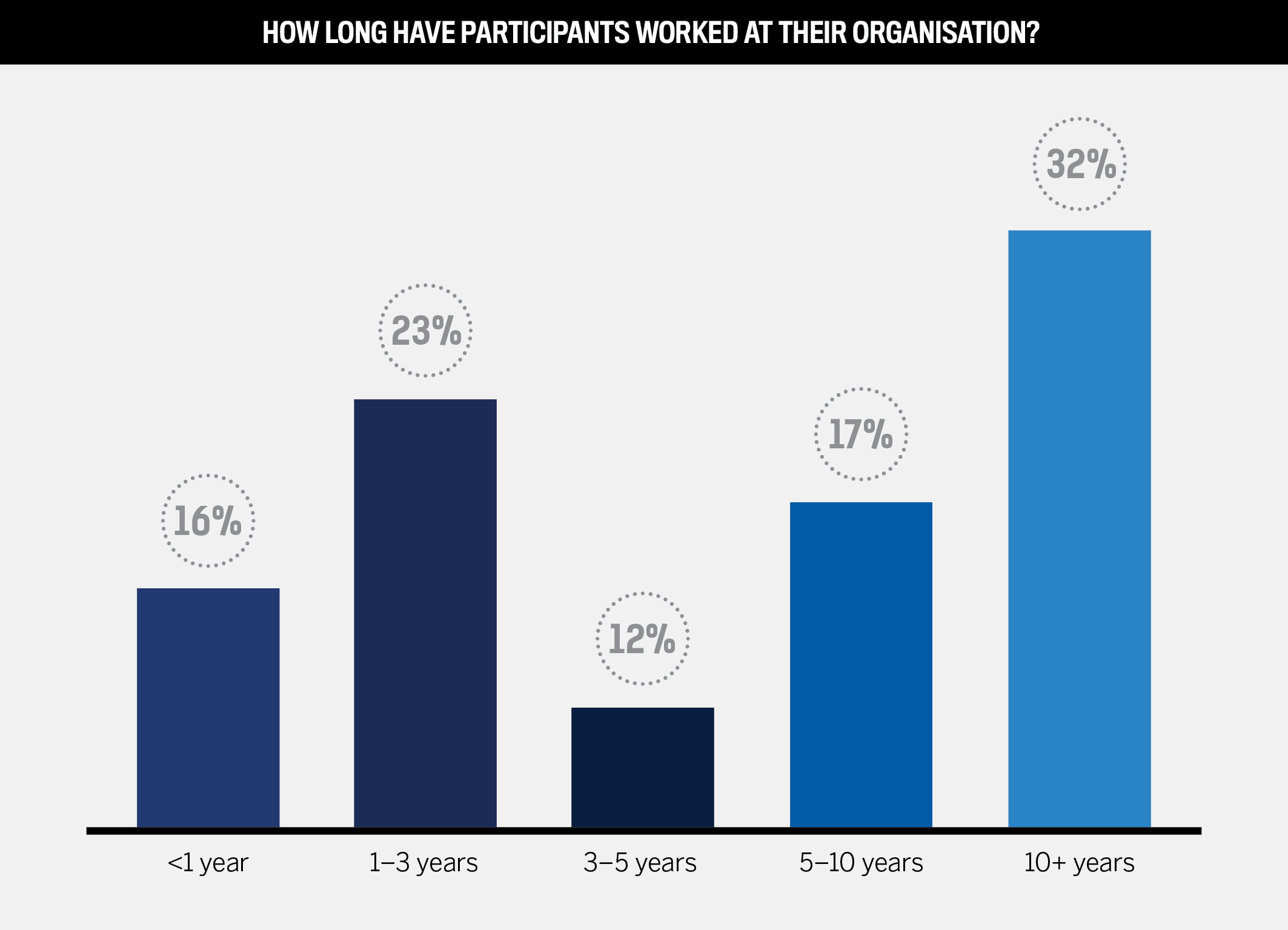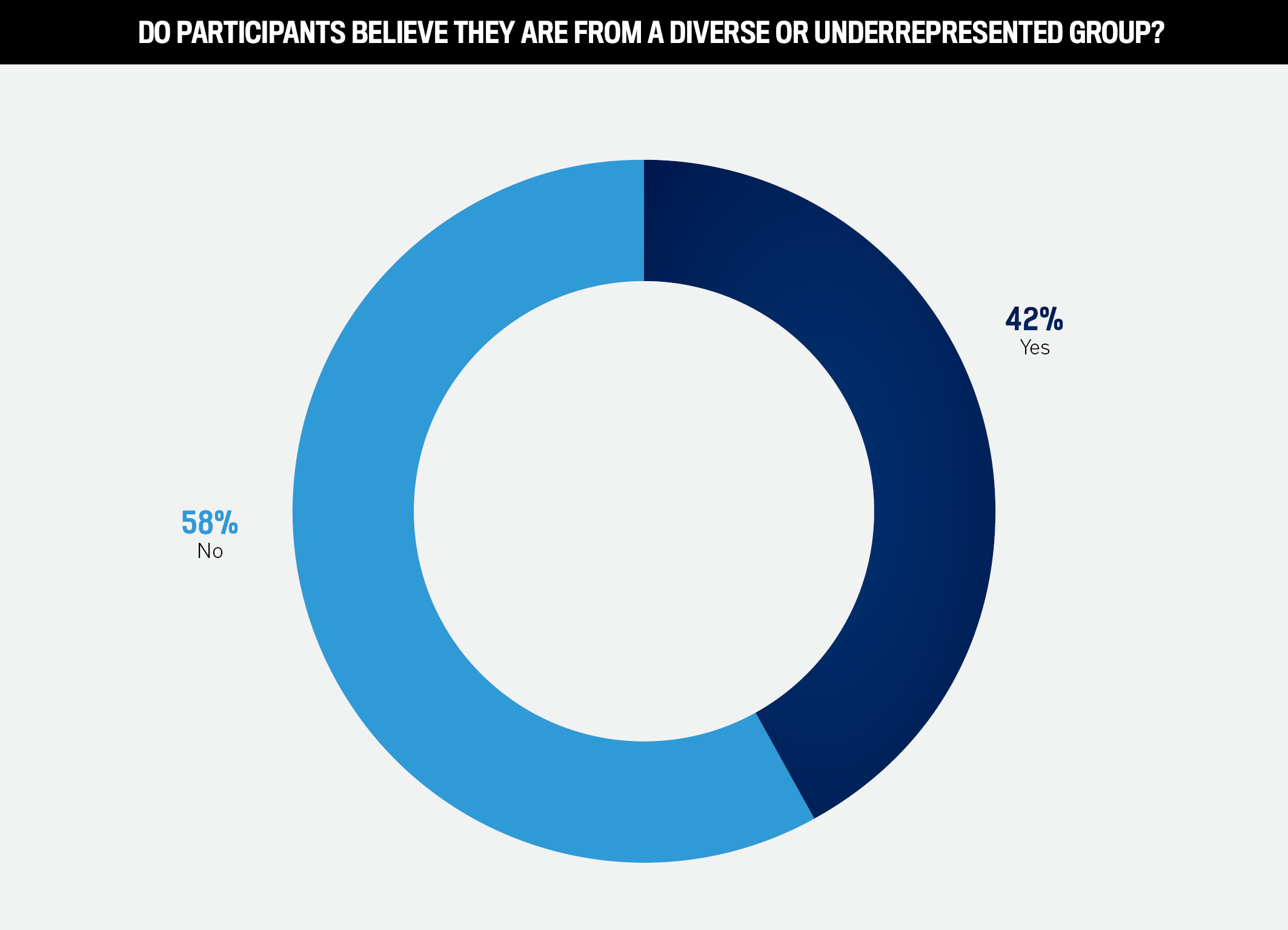
Best Diversity, Equity and Inclusion in the Workplace in the UK | 5-Star DE&I 2023
Jump to winners | Jump to methodology
Celebrating progression
Insurance Business UK’s 5-Star Diversity, Equity and Inclusion 2023 awards celebrate forward-thinking companies that support, respect and champion their employees.
Nishma Gosrani, OBE, a London-based partner with Bain & Company’s Financial Service, lists some of the key factors that make a DE&I program operate successfully:
-
make sure to implement policies correctly to maximise returns
-
invest leadership time and commitment, which is vital
-
use the company’s energy and resources to commit to delivery and results
-
stick with it for the long term as a continuous process, not a moment in time
Gosrani highlights how the firms that stand out, such as IBUK’s 5-Star winners, are obvious due to widespread public scrutiny. “The penny has dropped for a lot of businesses that DE&I is a reality they must address and deliver on,” she says.
IBUK surveyed employees at the nominated companies about the effectiveness of their DE&I program, with the results displayed below:

The real deal
While some companies are all in on DE&I, some firms are labelled as putting up a façade. However, leading authentically from the front is 5-Star winner Arch Insurance International.
“We are fully focused on DE&I targets and these are embedded in our strategy,” says Marcella McLean, chief human resources officer. “When I first joined, [CEO] Hugh Sturgess and I both agreed we were against tokenism. We have found that by being meritocratic, objective and open in our hiring processes, we’ve achieved many of our diversity targets in advance of our target dates.”
McLean lists the following as key fundamentals of Arch’s DE&I strategy:
-
committing time and managing the program over the long term
- leveraging executive-level resources to foster progress (top-down buy-in)
- accepting the need to hire people from other industries
Liisa Antola, DE&I policy adviser with the Association of British Insurers, explains that regulators take an active interest in DE&I, asking firms to report certain metrics, such as the composition of their boards.
“This limits the risk of being criticised for ‘social washing’ – presenting inauthentic social responsibility initiatives – as firms are demonstrating their progress and being held accountable.”
Jenny Cooper, the director of HR at 5-Star award winner Flood Re, also notes the problems with companies implementing programs at a less than ideal pace.
“Particularly post-COVID, employees want something different – that employee experience and the importance employees place on being in alignment with an organisation’s values and purpose and working somewhere that’s really meaningful for them,” says Cooper. “This has really grown above and beyond pay being a primary factor.”
Cooper highlights the features of Flood Re’s approach:
-
acknowledging that inclusion means different things to different people
- making everyone feel valued and like they belong
- attempting to keep all people happy all the time
- managing to stick to one plan in the face of constantly changing ideas
“There’s a mixture of organisations – and definitely those organisations that don’t take it seriously and just pay lip service will end up with a retention and attraction problem further down the line, in my opinion,” she says. “Employees generally are looking for more from their employer than just a job. They want to work somewhere that’s meaningful.”


Jenny CooperFlood Re
Finding a fully inclusive policy
Cooper expands on how Flood Re has implemented a respected DE&I scheme even though its employees have differing opinions and views.
“You might be introducing something that is the right thing to do as the organisation,” she explains. “Then you’ve got one group or one individual that absolutely thinks that’s great and you've got another that just can’t see that at all, and it’s at odds with a different belief or value that they hold. “
The underlying point is to instil respect across the group.
“You can raise awareness, share information without imposing views in a way where people can be respected if they agree that they don’t agree,” adds Cooper. “At the end of the day, we are here for a purpose – to deliver a reinsurance scheme. We’re not here to lobby and change things that might be out of our control.”
Antola echoes this and states the following factors as key considerations in successfully implementing a DE&I policy:
- making sure people aren’t offended, especially those from two or more protected groups
- listening to employees’ lived experiences and using them to inform policies
- looking at DE&I holistically and implementing it through one strategy
- using evidence – from feedback from staff, working groups, and networks and all levels of seniority – to identify and target barriers to implementation
- regularly reviewing and updating policies and procedures to tackle new challenges
Maintaining a mindset that will create progressive outcomes is also important for Arch’s McLean.
“The industry is looking at how to have quantitative, measurable initiatives in place to actually move the dial and develop it from just being a conversation to being something practical that can lead to meaningful changes.”

Survey participants’ insights into DE&I in the workplace
IBUK asked hundreds of employees:
Is there anything you believe your company could do better to foster DE&I internally?
- 56% said yes
- 44% said no
Some of the feedback included comments such as:
- “All good as far as I can see, but I am a white middle-aged straight man.”
- “It would be great to see more senior leaders from more diverse backgrounds.”
- “Mark other religions’ celebrations in the same way that they do Christian celebrations.”
- “Enforce more policies on hiring from underrepresented groups.”
- “Run courses for all on unconscious bias.”


Marcella McLeanArch Insurance International
Have you taken a DE&I issue with your company? If so, has it been taken care of properly?
- 95% said no
- 5% said yes
Some of the feedback included comments such as:
- “Gender-inclusive language changes, accommodations for disability, wider recruitment processes.”
- “I overheard a rash comment from a colleague, which I challenged, and he actively apologised and decisively changed. It was careless and unconscious, but [had] a good positive response.”
- “I took the issue up on someone’s behalf and yes, it was appropriately managed.”

Antola adds that top-performing DE&I programs, like those run by IBUK’s 5-Star winners, can drive meaningful change.
She points to a scarcity of employees from lower socioeconomic backgrounds, especially at senior levels, which she thinks can be addressed through more apprenticeships and programs for “school leavers.” Also, she says, there’s an increasing awareness of neurodiversity and menopause, issues which are often overlooked.
“We hope to help the insurance industry reach its ambition of being the most diverse, equitable and inclusive sector of the UK economy,” says Antola. “Not only does this mean we’ll better reflect the communities we serve, we’ll also be more effective as a result.”
Best Diversity, Equity and Inclusion in the Workplace in the UK | 5-Star DE&I 2023
1–99 employees
- Instant Underwriting
- Loadsure
100–499 employees
- CyberCube
500–2,499 employees
- Munich Re
2,500–9,999 employees
- RSA Insurance
- Zurich Insurance
10,000+ employees
- PwC
Insights
-
 Liisa AntolaPolicy Adviser, Diversity, Equity and Inclusion
Liisa AntolaPolicy Adviser, Diversity, Equity and Inclusion
Association of British Insurers -
 Nishma GosraniPartner, Financial Service Practice
Nishma GosraniPartner, Financial Service Practice
Bain & Company
SUBMIT YOURS
Methodology
To determine the insurance companies with the most effective DE&I programs, the Insurance Business research team first invited firms in the UK to share the DE&I initiatives they had focused on over the past 12 months.
During a 15-week process, the team conducted one-on-one interviews with DE&I professionals to gain a keen understanding of the industry standards for DE&I and find out which companies had met or exceeded those expectations. After receiving nominations for DE&I initiatives, the team reached out to the companies’ employees to gauge the effectiveness of these programs. The companies that scored 4 or higher on a scale of 1 to 5 were recognised for having 5-Star DE&I programs.
The 5-Star Diversity, Equity and Inclusion 2023 special report is proudly supported by Insurance Supper Group.
Keep up with the latest news and events
Join our mailing list, it’s free!


